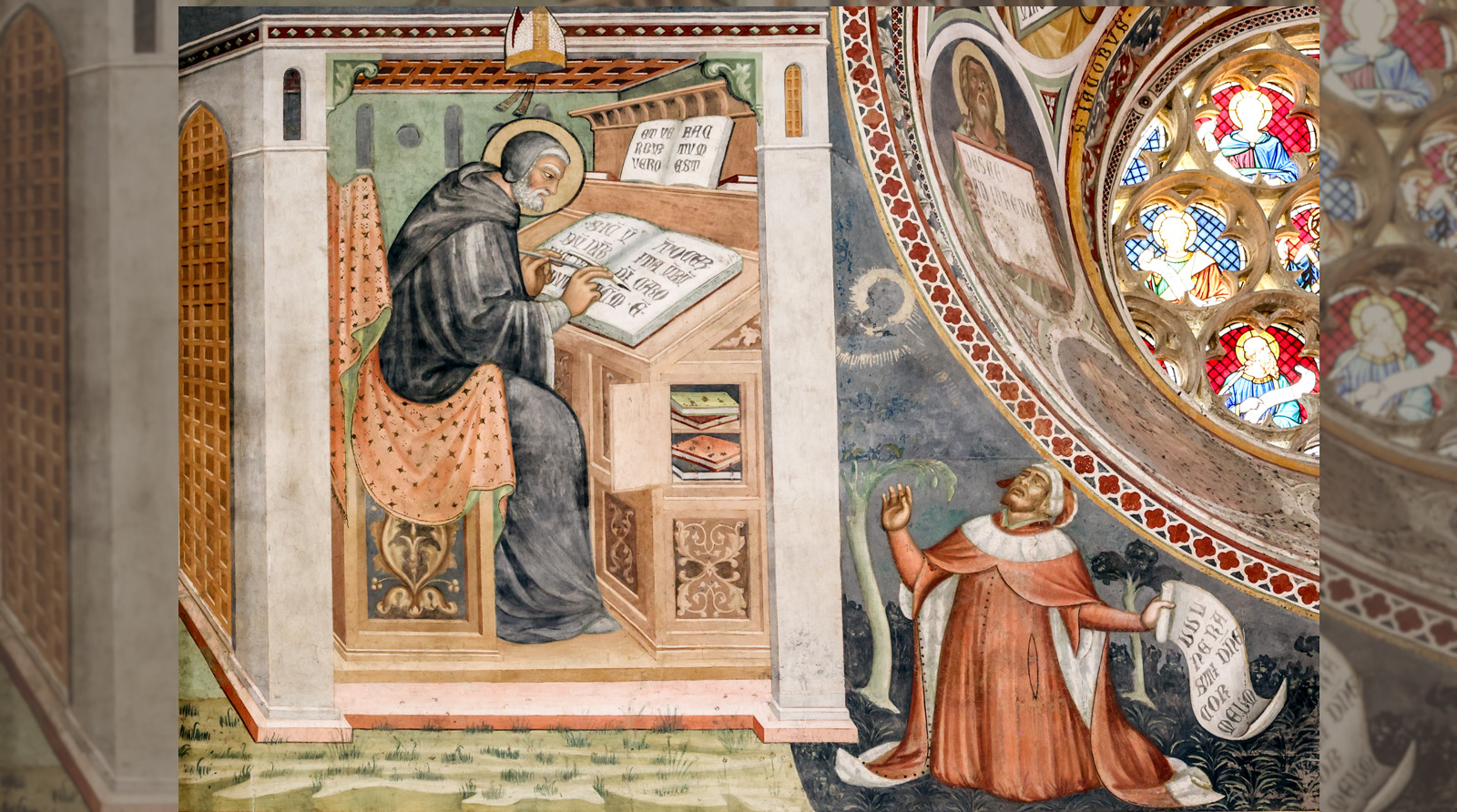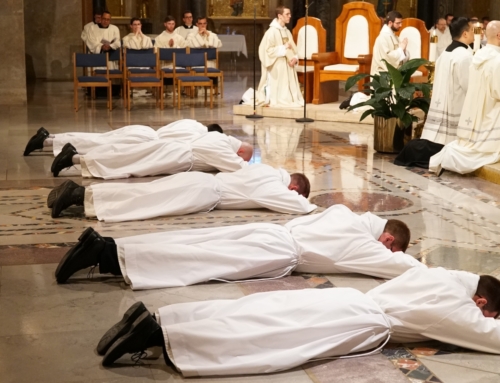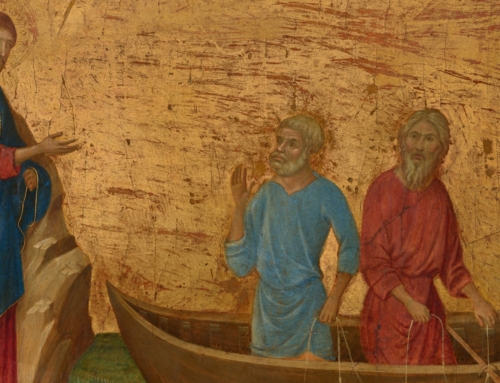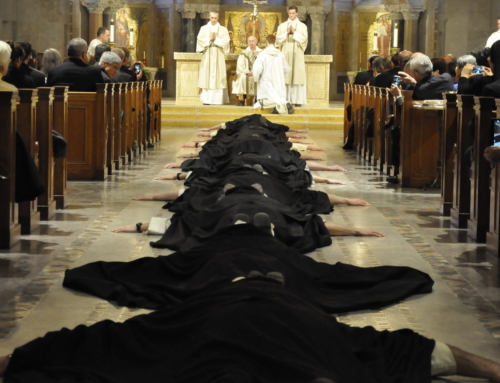Augustine was standing at a precipice when he heard the story of two men very much like himself. He recalls in the eighth book of his Confessions how he learned of two men foregoing promising careers in Milan in favor of the peaceful austerities of the monastery. They came upon the cloister while taking a stroll, and it was in the concrete abruptness of daily life that they made their choice—they chose God.
The young Augustine heard of their boldness at the same time he himself had come to believe so many truths about God while remaining nonetheless incapable of throwing his whole being into his assent, incapable of believing with the heart (Rom 10:10). These men had dropped everything in favor of serving the True God, but Augustine, who believed God was true, nonetheless clung unyieldingly to his fleshly habits. Their daring confounded him, it convicted him. Augustine was writhing in anguish and anxiety while desperately clutching at his corrupting, deceitful lusts. But these men were selling all they had in favor of that incorruptible treasure found only in the Kingdom of God.
One of these young monks had declared to his friend, “As for myself, I have broken away from our ambition, and have decided to serve God, and I propose to start doing that from this hour in this place” (Confessions VIII.vi.15). But Augustine was doing the opposite: he could serve God at any time but this hour and anywhere but this place. The tale of these monks made him see himself as he was: trapped in the future and living a life where he kept warding off his God by ceaselessly reiterating that he would come tomorrow—that he would start soon.
Saint Augustine’s motto, up to that point, was simple: not yet. Lord, give me grace, but not yet; Lord, I will follow you, but not yet; “Lord, make me chaste, but not yet” (Confession VIII.vii.17). He lives in tomorrow, but God demands a response today.
How well St. Augustine speaks to the experience of so many. The present moment confronts us with brutal oppressiveness. We fantasize about the future, and we brood over the past, but the present forces reality upon us here and now. The temptation is to flee, but fleeing from the present is to flee from the God who dwells here and now, who dwells in an Eternal Now. Augustine found the rest he sought only after accepting it on God’s terms. And God doesn’t demand that we are strong, for he supplies our strength; he doesn’t demand that we are wise, for he gives us wisdom. He demands that we answer his call in all the messiness and stress of this very day, rather than wait for the day when the grass is finally greener and all our ducks are in a row.
Only the ever-present God can flood our hours with life. Living in the present involves toil, and we have to endure its pains as long as we are on this side of heaven. We live our days, to quote the poet T.S. Eliot, in “prayer, observance, discipline, thought and action,” but we get “hints and guesses” of the tranquil rest that awaits us at the end of our labors, those labors that require the grace of Christ, a grace given in no other hour but this one, in no other place but here (Four Quartets).
Saint Augustine, cut to the heart by the story of the worldly men turned monks, followed their example and gave himself to God in a particular hour and a particular place. And he reaffirmed his choice every day for the rest of his blessed life. God took him, dried his tears, and welcomed him into the eternally present peace that surpasses all understanding (Phil 4:7). May we enter that same peace.
✠
Photo by Lawrence Lew, O.P. (used with permission)







